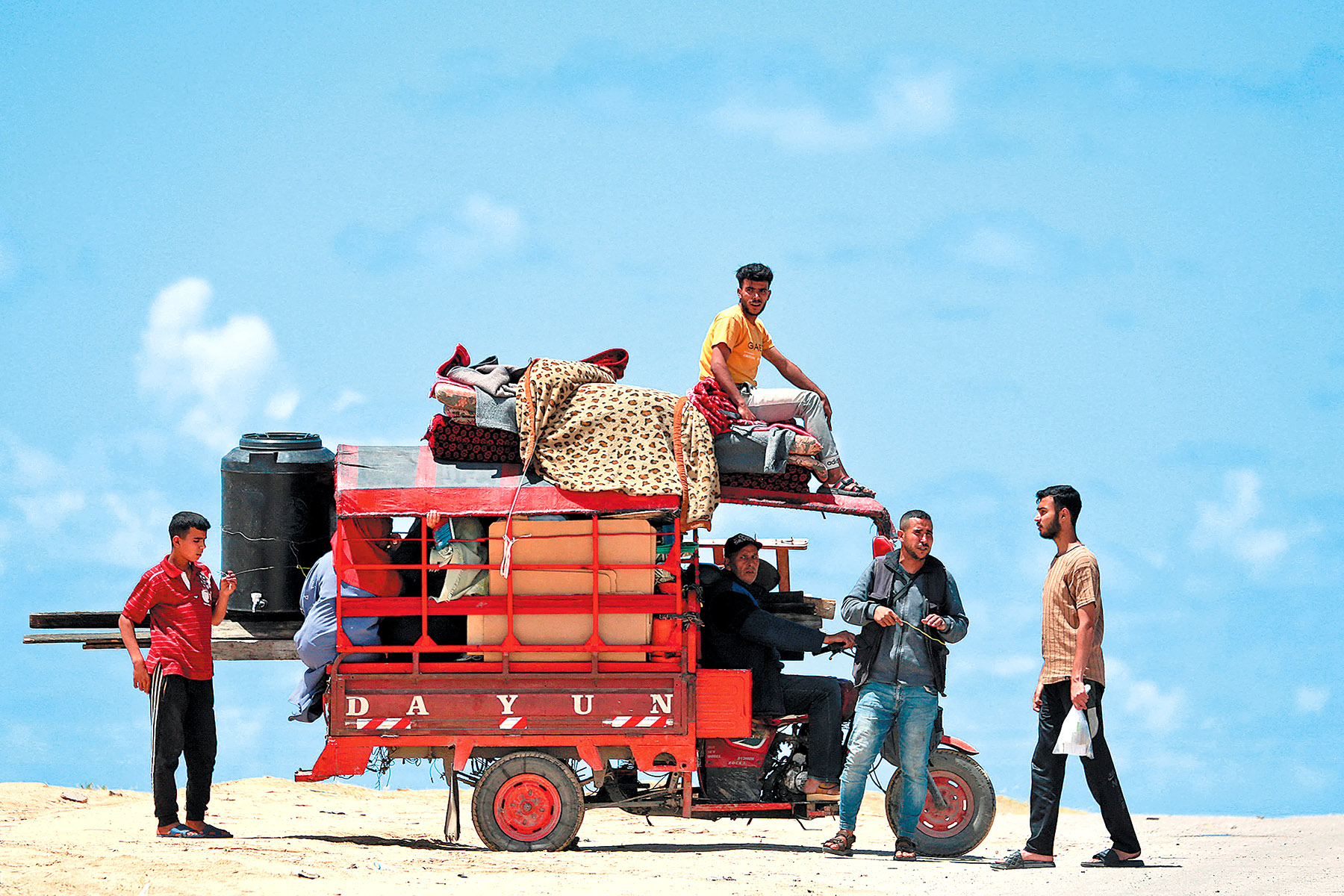Stalling of truce amid Israel’s taking control of vital border crossing increases Gaza famine fears

After Hamas accepted cease-fire proposals brokered by Egypt and Qatar, Israel’s latest attack on Rafah has again dampened hopes of a long-awaited truce and raised concerns of even more suffering in Gaza.
On May 7, Reuters reported that the Israeli military had taken control of the vital Rafah border crossing, pushing further into the southern Gazan town.
At least 20 people had been killed in the Israeli advancement overnight, Xinhua News Agency reported on the same day.
This could cripple the already narrow flow and slow pace of essential humanitarian aid reaching Gaza, as the Rafah border crossing is shared between Egypt and Gaza, experts warned.
International humanitarian organizations have for weeks warned that famine was imminent. Executive director of the World Food Programme Cindy McCain said she believed “full-blown famine” was already happening in northern Gaza.
Palestinian news agency WAFA reported Israeli carpet-bombing in areas east of the city of Rafah amid fears of a looming ground invasion of the densely populated province.
President of the United Nations General Assembly Dennis Francis said on X, formerly Twitter, that “nothing can justify” Israel’s attack on Rafah. He said it meant “more humanitarian catastrophe”, noting this is a “critical moment to take decisive steps toward a permanent cease-fire”.
On May 6, media reported that Ismail Haniyeh, the supreme leader of the Palestinian Islamic Liberation Movement (Hamas), had confirmed the group’s acceptance of what it stated were Israel’s cease-fire terms after Qatari and Egyptian-mediated truce efforts.
However, widespread media reports citing an Israeli official followed, with Israel saying that the terms Hamas agreed were not the ones they had agreed to “While the Hamas proposal is far from meeting Israel’s core demands, Israel will dispatch a ranking delegation to Egypt in an effort to maximize the possibility of reaching an agreement on terms acceptable to Israel,” read a May 6 statement released by the Israeli Prime Minister’s office.
The statement added that Israel’s war cabinet unanimously decided to continue its operation in Rafah, to apply military pressure on Hamas to advance the release of hostages and achieve the other objectives of the war.
Haydar Oruc, a former researcher at the Center for Middle Eastern Studies (CMES) in Turkiye, told China Daily that when Hamas accepted the cease-fire plan presented by Egypt and Qatar, “all eyes turned to Israel”.
“But Israel, as expected, rejected the ceasefire agreement accepted by Hamas, showing once again that it is the party that wants the war to continue,” said Oruc.
Earlier, Majed bin Mohammed Al-Ansari, the official spokesperson for the Ministry of Foreign Affairs of Qatar, announced that Hamas responded to a proposal from mediators and that the response “can be described as positive”.
Palestinian President Mahmoud Abbas also welcomed Egyptian-Qatari efforts to reach a cease-fire agreement in Gaza, as he called on the international community to also exert pressure on Israel to compel it to abide by this agreement, WAFA reported.
UN High Commissioner for Human Rights Volker Turk warned that civilian deaths, suffering, and destruction “were set to increase beyond already unbearable levels” following Israel’s orders to Palestinians to evacuate parts of Rafah.
“Overnight, at least 26 Palestinians in Rafah were reportedly killed, mostly children and women. Today, two crossings into Rafah have been shut, completely halting the inflow of meager levels of humanitarian aid,” said Turk on May 6.
He also emphasized that Gazans “continue to be hit with bombs, disease, and even famine” and that they have been told that they “must relocate yet again as Israeli military operations into Rafah scale up”.
Despite the situation, the UN Relief and Works Agency for Palestine Refugees in the Near East (UNRWA) said on X that it was not evacuating.
The UNRWA will maintain a presence in Rafah “as long as possible” and “will continue providing life-saving aid to people” as it anticipated the consequences “would be devastating for 1.4 million people”, it wrote.
The Ministry of Foreign Affairs of Saudi Arabia warned of the dangers of the “Israeli occupation forces” targeting Rafah.
“The Ministry renewed the Kingdom’s demand for the international community to intervene immediately to stop the genocide carried out by the occupation forces against defenseless civilians in the occupied Palestinian territories,” it said in a statement.
Oruc, from CMES in Turkiye, said despite calls and warnings against launching an attack on Rafah, Israel showed it was “not only aiming to eliminate Hamas, but it was also to occupy the whole of Gaza and annex it to its territory”.
“With this latest move, Israel has once again demonstrated that it does not recognize international law,” he said.


